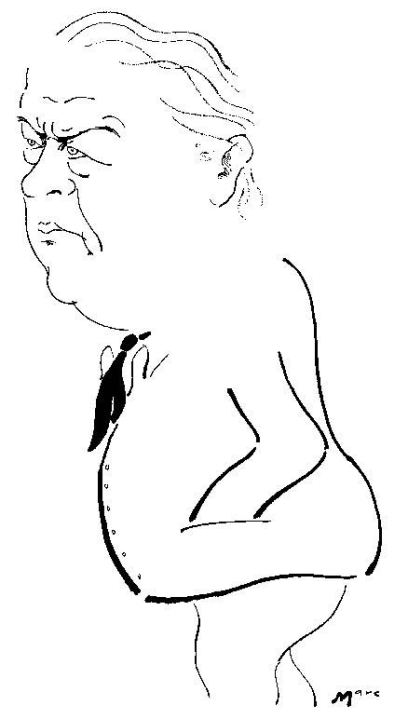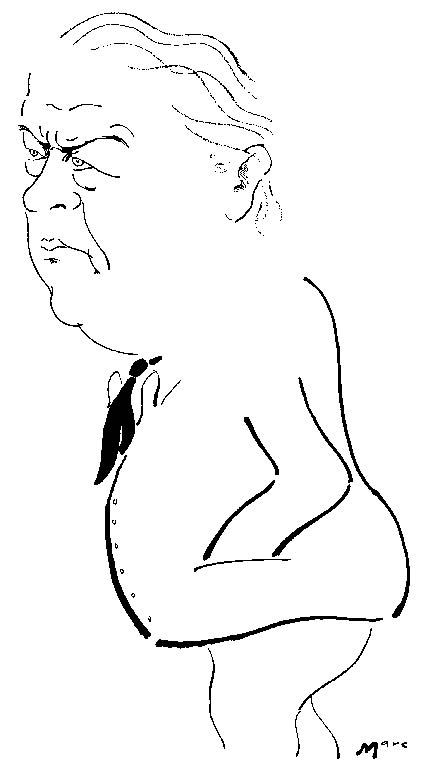If not equal to his best novels, Kingsley Amis’s short stories are still wonderfully entertaining, says Philip Hensher
Some writers of short fiction — there doesn’t seem to be a noun to parallel ‘novelist’ — are dedicated craftsmen, like Chekhov, Kipling, William Trevor, Alice Munro or V.S. Pritchett. Others, like Evelyn Waugh or E.M. Forster, are more haphazard, producing stories to commission, or as a sketch, to try something out in moments when an idea on a small scale seems to be all that inspiration can supply. The result, when the collected edition finally surfaces, is generally more varied in surface than the works of the specialist — just think of Dickens’s stories, written for odd occasions and generally at short order. But, however packed with interest they are, stories by the casual dabbler will rarely have the august authority of those of the master.
Kingsley Amis was very much an author who, in his larger works, would try something out, see what success it had and then move on to something else. His novels of the late 1960s and early 1970s, which was in many ways his most confident and interesting period, include two powerfully expressive, minatory masterpieces in Ending Up and Girl, 20; two fascinating, unforgettable, flawed novels in I Want It Now and The Anti-Death League; and four major exercises in specific genres, spy thriller, ghost story, roman policier and alternate-world sci-fi. Even when, as in Ending Up or the superb ghost story The Green Man, he must have known he had scored a major success, he always moved on swiftly, sometimes to a less resounding achievement.
If this is true of the novels, then it is very much more so of the collected short stories. They are, in the most positive sense, a mixed bag. They are written by a man with plenty of interests in life, a large capacity for changing his mind and containing contrasting, even conflicting opinions within himself. The reader genuinely never knows what is coming next. There are chips from larger works — a very playful short story runs the events of The Green Man one more time, as if happening to Amis and his then wife, Elizabeth Jane Howard, in reality, and fooling any number of people. ‘The late Bruce Montgomery,’ Amis tells us, ‘telephoned to ask if the story was true.’
There are beautiful genre efforts, including a whole Sherlock Holmes story. There are stories in genres that Amis never properly attempted on a larger scale: a series, beginning with ‘The 2003 Claret’, are a brilliantly amusing mash-up of oenophile fantasy, time-travelling science fiction and raw farce. (Amis never lost interest in what happens to genre when one or more of the characters is almost permanently drunk).
Most of them seem happy to employ the twist in the tail and the shocking revelation, as if flouting all those pieties of the literary short story since Katherine Mansfield. More surprisingly, there are stories which venture into historical fiction. That, of all genres, is the one which might have tempted Amis the least, but the story about Robert and Elizabeth Browning’s elopement is enchanting.
Perhaps most of these were written with the left hand, as it were, and not always polished to the highest degree. Amis had no objection to crowd-pleasing effects, nor, indeed, in genre, to the appropriate sort of cliché — he has a ball, in a vampire story, with ‘apple-cheeked’ villagers and Transylvanian countesses who experience an ‘undirected uneasiness . . . sharpened tonight into foreboding.’
On the other hand, some other blunders against good taste seem less likely to be intended. He was not the first novelist, nor would he be the last, to use the expression ‘he thought to himself’ — Julian Barnes was at it the other day. But such a fastidious observer of the life of the English language was only likely to use it when his creative energy was not at its highest peak, and it crops up more than once in these stories.
They are wonderfully entertaining, after all — one would never be bored by any page of Amis’s fiction — but you don’t feel that he would have placed them at the peak of his creative endeavour. As he says himself, turning from a novel to a short story,
from having to keep 20 Indian clubs in the air at once you suddenly find yourself given licence to get by with two. And if you drop one of those, what does it really matter?
A sentiment it is difficult to imagine Chekhov voicing; but then Amis was always someone at his best when keeping 20 clubs in the air.
The most serious attempt to write short stories in the classical, Kipling-Pritchett-Mansfield way comes at the beginning of this collection, in a series about army life. But when Amis tries to create a moral dilemma within an army context, it doesn’t always work. In the first, ‘My Enemy’s Enemy’, he is rightly insistent on the futility and time-wasting nature of military routine, but then can’t quite convince us that the ethical problem he creates doesn’t share that same element of slight futility. The best of the army stories, ‘I Spy Strangers’, draws on Kipling’s great ‘The Village that Voted the Earth Was Flat’. In it, the favourite activity of regimental entertainments officers, the mounting of a moot parliament, gets a little out of hand shortly before the 1945 election:
The Prime Minister felt it his duty to intervene. ‘Turn it up, Hargy,’ he called. ‘You’ve had nearly 20 minutes now. Give the other lot a go, eh?’
The inviolable hierarchies of army life are assaulted, just as the Labour landslide and the coming of the welfare state are doing the same for hierarchies in society. It works beautifully as a parable and a vignette of changing mores, with exactly that touch of riot which gives the Kipling story such power.
It is also, it is worth saying, not a story which the conventional image of Kingsley Amis could ever have produced, so thoroughly does it go round gathering any interesting point of view. This image was given, with marvellously inaccurate concision, by Professor Terry Eagleton a couple of years ago, when, à propos of nothing very much, he called Amis ‘a racist, anti-Semitic boor, a drink-sodden, self-hating reviler of women, gays and liberals’. So solidly is this image now established that no one apart from me seems to have objected to Eagleton’s caricature. I pointed out that several women thought that Amis liked them a lot, and, far from reviling ‘gays’, he created more plausible and sympathetic portraits of homosexuals than any novelist of the period apart from Iris Murdoch.
The caricature enveloped the complexity and range of Amis’s human sympathies and interests in his later years, just as a similar caricature is now beginning to obscure the achievement of V.S. Naipaul. But the vitality of his novels ought to speak for itself, and, in a smaller and less engaged way, so does the startling impromptu, left-hand display of these stories. A literary stick-in-the-mud would never have written a Cartesian science-fiction story in which all the strange events happening in deep space turn out to be hallucinations implanted by a malevolent oppressive government.
Nor, in a smaller way, would the Amis of caricature have started to wonder what Macbeth might, in reality, have looked like to the Pope of his era. If you want a good place to start, then the alcoholic time-travelling stories are a delight, in which staggeringly inebriated scientists lurch backwards and forwards through the centuries, stealing vines, tasting 14th-century claret or partaking in 21st-century recreations of meths-drinking clochard society.
Most of these stories are entertaining, though none is as impressive as the best of his novels. On the other hand, even though they make quite a bulky volume, I was very sorry there weren’t still more of them.







Comments